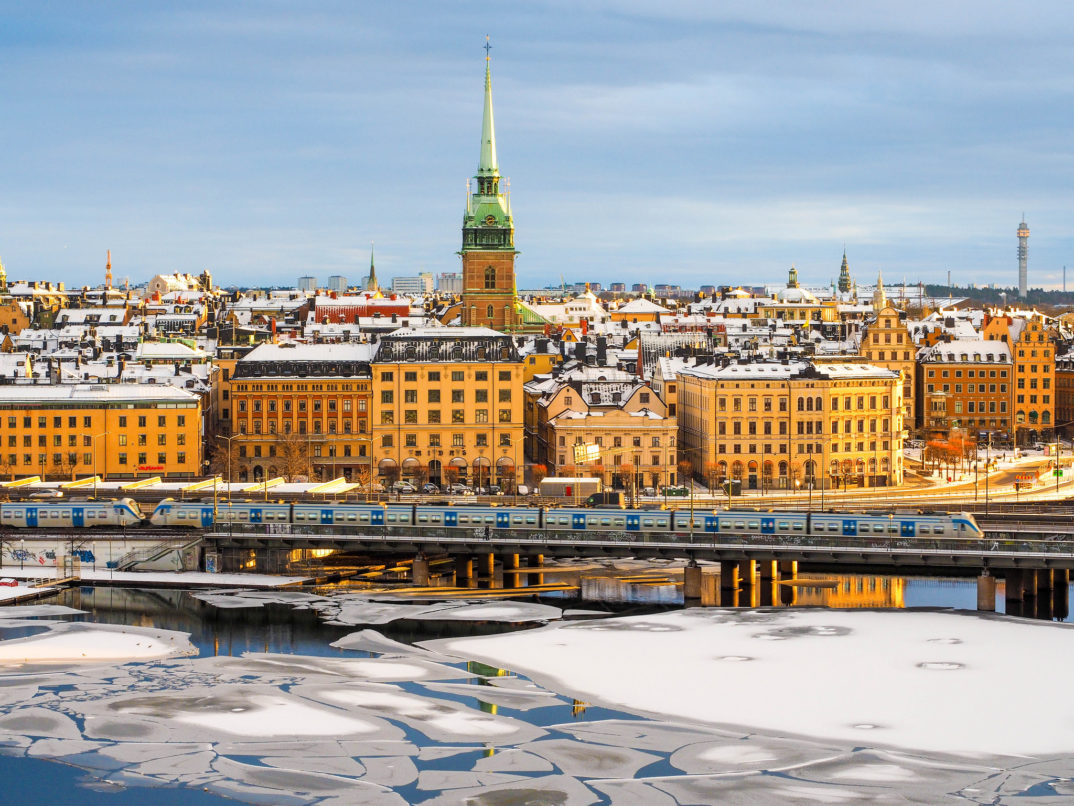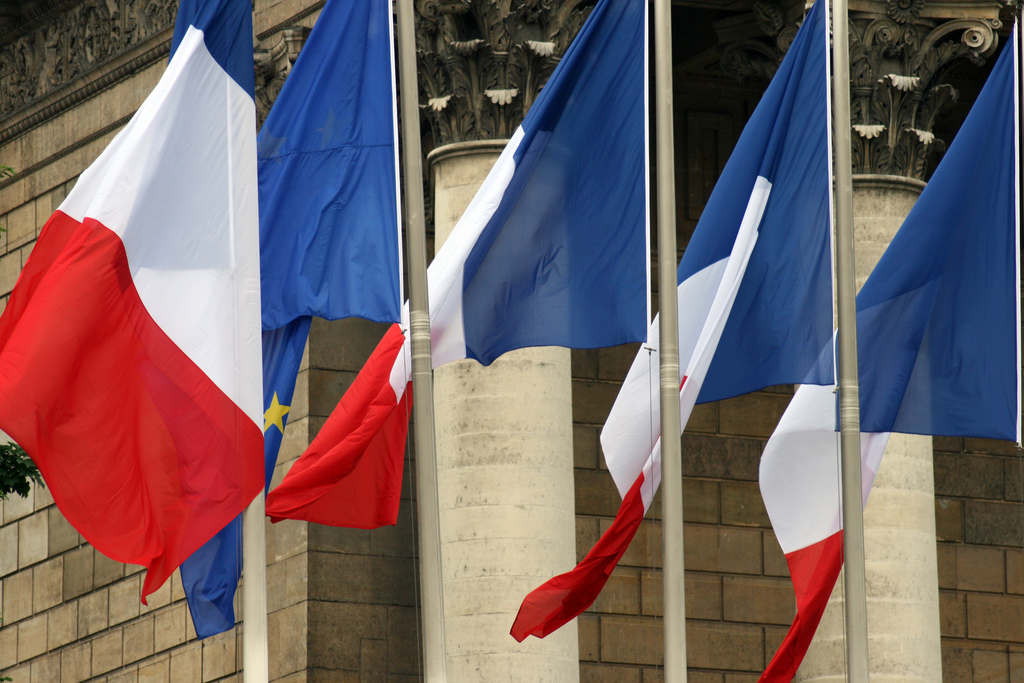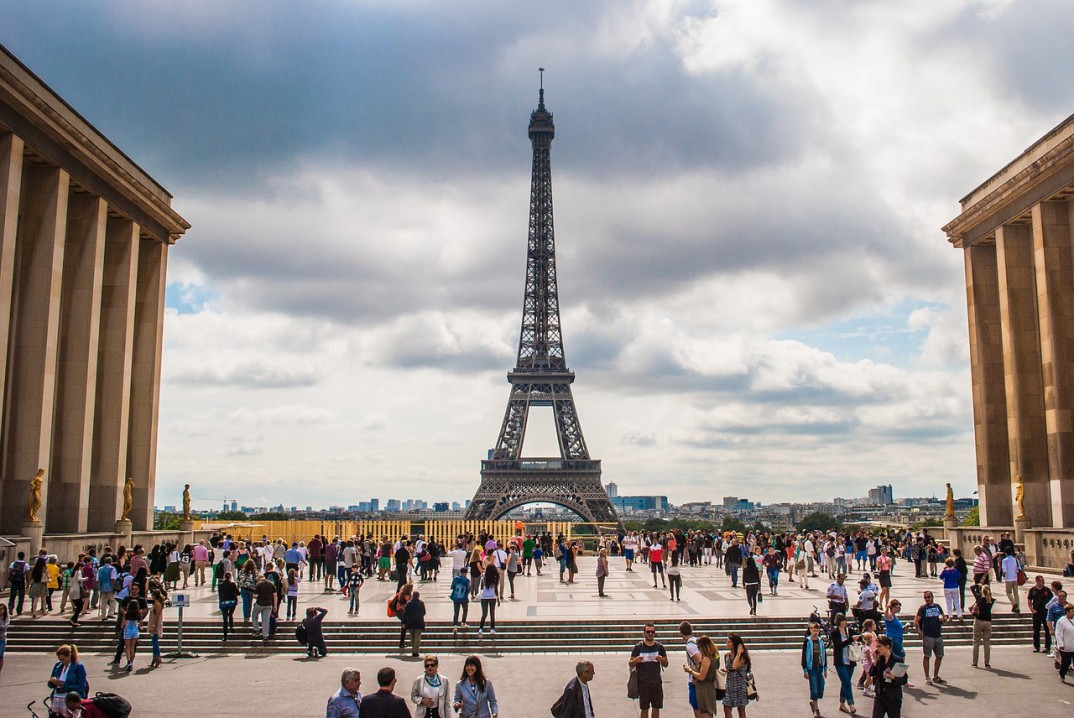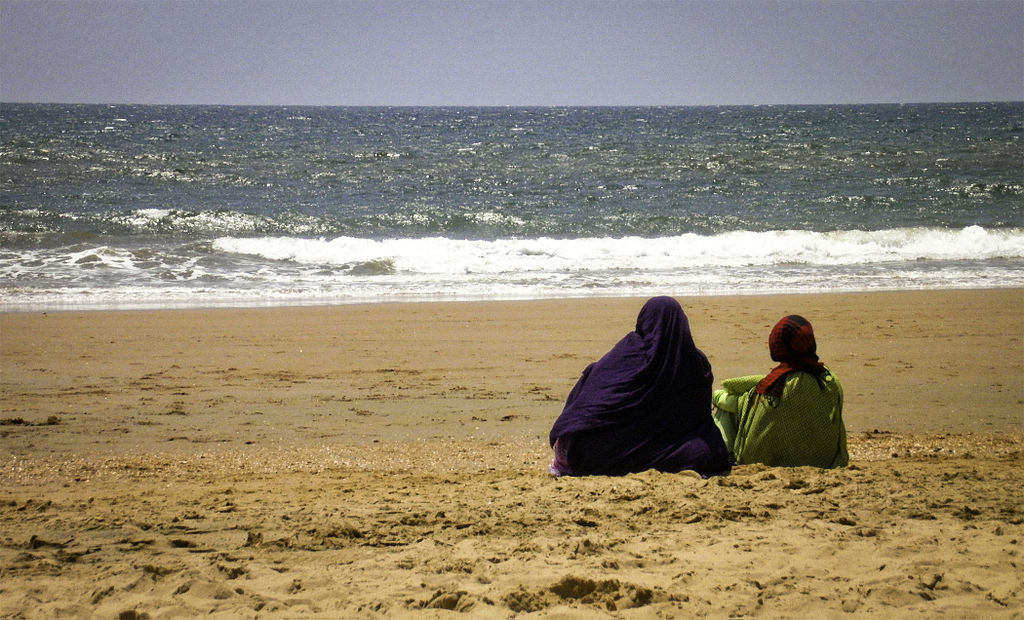In 2015, the year of the Syrian refugee crisis, Sweden accepted over 160,000 refugees, more refugees per capita than any other European nation. The sparsely-populated country prides itself on its generosity towards newcomers, and Sweden’s foreign minister even declared the country to be a “humanitarian superpower.” Years later, Sweden continues to be one of two European nations (the other being Germany) to have opened its borders to such a drastic extent, having accepted approximately three out of every four asylum seekers in 2015. Continue reading “Crisis in Sweden: A Struggle with Mass Migration”
Colorblindness, the World Cup, and the Difficulty of Hyphenated Identities
This article has a set of discussion questions tailored for classroom use. Click here to download them. To see a full list of articles with discussion questions and other resources, visit our “Educational Resources” page.
In celebration of France’s World Cup win, Trevor Noah congratulated Africa and the Africans on their victory. This was a commentary on the majority of France’s players having African heritage, but was quickly met with a response from the French ambassador.
The question of French identity has often been controversial, and in a letter to Noah, the French ambassador points out that when xenophobic neo-Nazis spread their hateful messages, they use rhetoric similar to Noah’s – emphasizing the “Africanness” of some citizens of France, which for the neo-Nazis speaks against their French identities.
The French Ambassador to the United States, Gerard Araud, was speaking for the “colorblindness” ethos that is alive and well in France today, largely a response to its troubles with rampant xenophobia. France recently removed “race” from its constitution in a move to further the value of viewing the world through a “colorblind”, or race-free, lens and instead see the human race, and especially the French people, as unified.
Noah pushed back against the idea that someone’s origins did not matter. In his original segment, he joked, “You don’t get that tan in the south of France”, and in his response to the ambassador’s letter, he alluded to the colonial history that underpins the immigration story for so many of France’s African heritage citizens. These presses fit with the Comedy Central host’s overall call for more nuance and context, both in discourse and dialectic (when he uses his culture’s slang it means something different than when a hateful white person does) and in our understanding of identities (having one heritage does not necessarily make you have less of another – being African should not preclude Frenchness).
In drawing attention to this latter point, Noah noted in particular the passage where Araud claimed, “Unlike in the United States of America, France does not refer to its citizens based on their race, religion or origin. To us there is no hyphenated identity. By calling them African, it seems you are denying their Frenchness.” In avoiding emphasizing hyphenated identity, France attempts to emphasize a national unity and undermine the divisive xenophobic influences. After all, in 1998 when a diverse French team won the World Cup, a political leader condemned the team’s ability to represent France on the basis of their heritage, claiming they were unworthy and didn’t know the words to the national anthem.
However, in battling the ambassador’s supposed message of unity, Noah paints the US’s hyphenated identity as a positive alternative, as though France’s criticisms were wholly unfounded. There are worries with the “colorblind”, race-denying, and ahistorical approach to governing and understanding a nation such as France is attempting, perhaps, but in a call for more nuance and context, Noah celebrated the United States’s inclusion of hyphenated identities as though it has been a road towards inclusion and celebration of heritage here historically.
In his remarks about the issues with France’s value of colorblindness, Noah points out that in practice it often amounts to a selective colorblindness, where someone’s non-French origins are noted when their non-desirability is at stake. When someone wins the World Cup, they’re French, but when you’d rather not identify them as a part of your nation, they’re “from elsewhere”. This is typically how hyphenated identities work in general, including in the US.
In her recent comedy special Nanette, Hannah Gadsby discusses identity at length. She addresses straight white men in their current time of discomfort in a telling way: this is the first time their identity gets a name. Previously they’ve been “human neutral”. Typically, you get a hyphen for being different, marginalized, some identity that gets dealt with. This point is consistent with Noah’s point about how the French identity is granted as an honorific often in discourse. And with a hyphenated identity comes a label to celebrate and feel pride, overcoming marginalization in community and strength; as Noah notes, there are parades for some, like Saint Patrick’s Day.
It is important that one identity isn’t denied by noting another. One person can be a member of multiple communities. However, having a country of hyphenated identities does not solve the problems of racism and bigotry any more than taking race out of a constitution and aiming for “colorblindness.” It’s more nuanced than that.
In France’s National Elections, Historique pour l’europe
On Sunday, French citizens went to the polls and advanced Emmanuel Macron and Marine Le Pen to the next stage of their presidential election process, eschewing the traditional, mainstream parties that have long dominated French politics. For the first time in French history since the establishment of the Fifth Republic, neither a candidate from an established center left party nor the primary center right party advanced to the final round of the election. It is only the third time a candidate not representing one of those parties has made it to the second round.
The French public’s rejection of the historical mainstream parties is part of a larger global trend of rejecting so-called political insiders and electing far-right candidates, seen in the U.S.’s election of President Donald Trump in 2016 and the Polish election of the Law and Justice Party in 2015. Some reporters called this French election a referendum on Europe, as the European community reels from the blow of the Brexit vote in 2016.
Continue reading “In France’s National Elections, Historique pour l’europe”
Fighting Terrorism with Tourism
In the summer of 2015, a lone gunmen massacred 38 tourists enjoying a sunny beach in Tunisia. Since this incident, many radical terrorists have been targeting tourist destinations for attacks, aiming to deter economic progress in these countries. These countries range from fragile Arab Spring nations attempting to progress economically, like Tunisia and Libya, to longstanding Western tourist destinations like France and Spain. Since tourism is an important part of the global economy, does the average traveler have a moral responsibility to ignore terror threats and continue traveling to potentially dangerous countries?
Overworking the Western World
There’s no question that technology has caused Americans and others around the world to work more. It’s not uncommon for a typical white-collar job in the United States to come with a company phone, company iPad and company computer. All these devices contribute to increased work and work-related stress. Carol Olsby, a member of the Society for Human Resource Management’s expertise panel, states, “Technology allows us to work anywhere, anytime.” This culture of overworking is prominent in the United States and worldwide, and has detrimental effects for mental health.
“French-ness” and the Burkini Ban
Multiple cities in the French Riviera banned Muslim women from wearing a “burkini” in public, a full body swimsuit resembling a wetsuit. France’s foremost court overturned these bans, arguing they “seriously, and clearly illegally, breached the fundamental freedoms to come and go, the freedom of beliefs and individual freedom.” Over 30 cities in France had prohibited women from wearing the religiously-motivated swimsuit at public beaches, even forcing women to leave the beach and only allowing them to come back if they are wearing something more “appropriate.”






